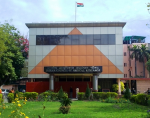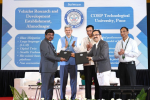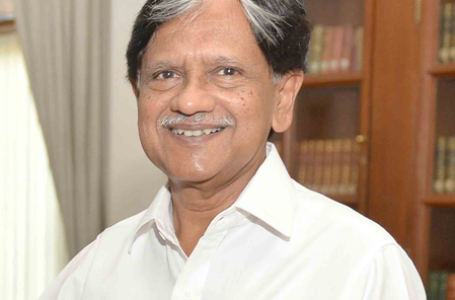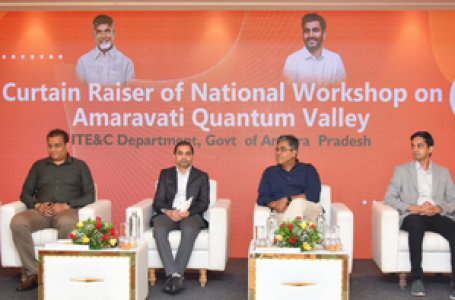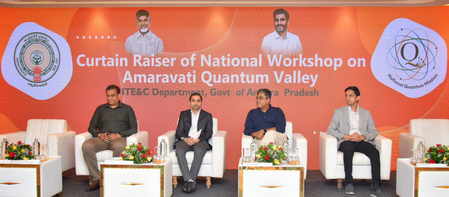
Vijayawada: Andhra Pradesh will launch India’s first full-stack Quantum Valley in Amaravati by January 2026, integrating hardware, software, talent, and research capabilities, officials said on Wednesday.
It is a pioneering initiative aimed at establishing India’s first dedicated quantum computing and deep tech ecosystem and is being undertaken in collaboration with global technology leaders such as IBM and Tata Consultancy Services (TCS).
Andhra Pradesh will become the first Indian state to build a full-stack quantum infrastructure, covering hardware, software, algorithms, materials, and talent development. Quantum facility will be remotely accessible across India, with the potential for users, including startups, researchers, and students.
Experts say that quantum tech will revolutionise key sectors like pharma, agriculture, cybersecurity, and finance, with strong support for innovation hubs and job creation.
Amaravati Quantum workshop under the theme ‘Envisioning Amaravati as a Global Capital for Quantum Technologies’ will be held on June 30 in Vijayawada, featuring global stakeholders including IBM, TCS, US Consulate, NITI Aayog, and IITs.
Chief Minister N. Chandrababu Naidu will deliver a keynote address and release the Amaravati Declaration outlining the state’s vision for quantum technology.
The full-day workshop will bring together leading national and international stakeholders to chart the path forward for quantum technologies.
The Department of Information Technology, Electronics and Communications (ITE and C) of the Government of Andhra Pradesh on Wednesday hosted a Curtain Raiser event to bring together key government leaders, industry pioneers, and research experts shaping India’s quantum future.
P. S. Pradyumna, Secretary to the Chief Minister, highlighted the government’s commitment to quantum computing, noting its exponential speed advantage over classical computing. “Quantum is a game-changing technology that is expected to scale rapidly by 2030. Already, many companies are transitioning to quantum-secured systems,” he said.
He underlined the advantages for Andhra Pradesh’s pharma sector, explaining that quantum simulations can accelerate drug discovery by modelling molecular structures.
Bhaskar Katamneni, Secretary, ITE and C Department, stated that Andhra Pradesh is the first state in India to take such a comprehensive initiative.
“Many applications will run on the Amaravati quantum system, and we’re building an ecosystem that enables industries to bring their challenges and develop algorithms using our facility. By January 2026, this will be the first full-stack quantum infrastructure in India, accessible remotely by users across the country. We expect 90,000 to 1 lakh people to benefit from this system,” he said
Addressing concerns about automation, he clarified that quantum computing will not replace humans. Classical computing will remain relevant, and quantum will complement it, he said.
Prof. Anil Prabhakar of IIT Madras, Advisor at TCS, and an expert in quantum communications, explained the power of quantum computing. “Unlike conventional systems, quantum computers can solve previously intractable problems. IBM leads globally, and by 2024-25, we’re talking about 1,000-qubit systems. Others are catching up fast,” he noted.
He outlined key applications including cryptography, route optimisation, battery design, materials science, bin packing, image classification, drug discovery, protein folding (via ion-trap computers), and cybersecurity. “The Amaravati Quantum Valley will provide academia and industry with access to these powerful tools,” he said.
Dr Amith Singhee, Director of IBM Research India and CTO, IBM India and South Asia, said that their goal is to deliver useful quantum computing to the world. “With Andhra Pradesh’s focus, we expect to develop strong applications and algorithms over the next 3–4 years, with Amaravati reaching key development milestones by 2029.”
IANS



